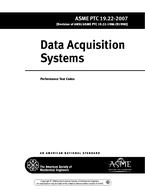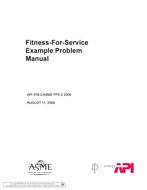Click here to purchase
The bolted flange joint assembly (BFJA) guidelines described in this document apply to pressure-boundary flanged joints with ring-type gaskets that are entirely within the circle enclosed by the bolt holes and with no contact outside the circle. By selection of those features suitable to the specific service or need, these guidelines may be used to develop effective joint assembly procedures for the broad range of sizes and service conditions normally encountered in industry. Guidance on troubleshooting BFJAs not providing leak-tight performance is also provided in this document (Appendix P).
PCC-1-2013 replaces the first edition, published in 2000.
These guidelines are unique in the world for addressing issues with the assembly of pressure vessel and piping bolted joints from a standards perspective. They address subsequent advances in gasket technology, bolting assembly procedures, and calculation methods that have enabled the improvement of both the integrity and efficiency of bolted-joint assembly.
PCC-1-2013 assembles current industry best practice into one easily-referenced location. Appendix A, ?Training and Qualification of Bolted Joint Assemblers?, for example, provides guidelines for establishing uniform criteria for training and qualifying bolted joint assembly personnel, as well as guidelines for quality control of the program. In addition, Appendix F, ?Alternative Flange Bolt Assembly Patterns?, adds faster methods of assembly that will achieve equal or better joint integrity than legacy methods. Applying such lessons learned could offer significant benefits in BFJA safety, efficiency and cost-reduction.
Intended for assemblers, designers, supervisors, inspectors and instructors in all industries that employ pressure boundary bolted flange joints.
Product Details
- Published:
- 09/30/2019
- ISBN(s):
- 9780791872635
- ANSI:
- ANSI Approved
- Number of Pages:
- 114
- File Size:
- 1 file , 1.7 MB


